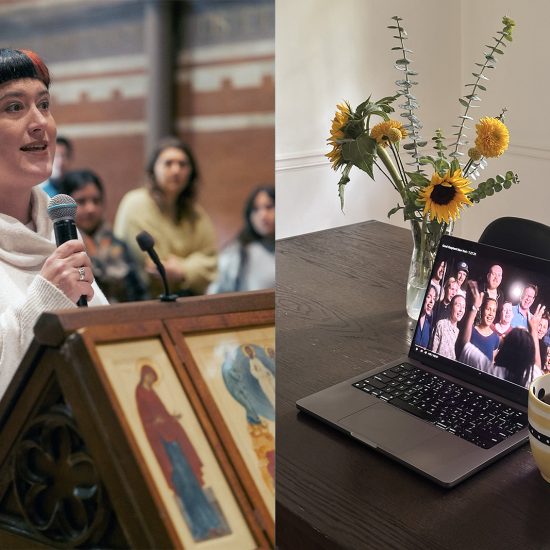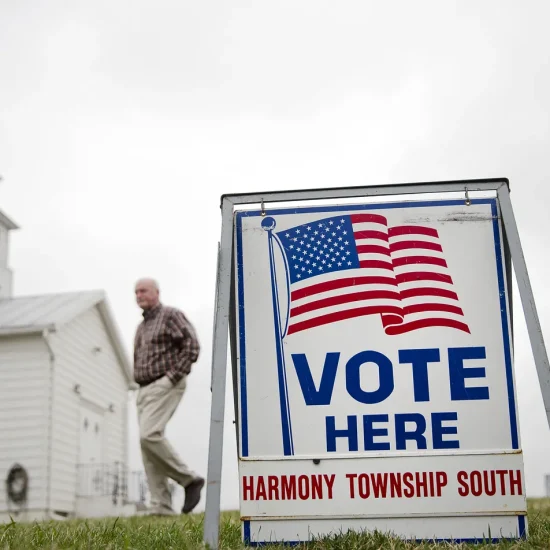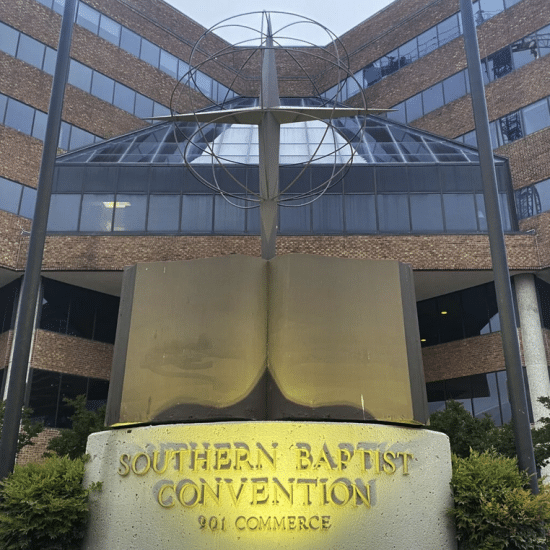
Why so many people have deserted their churches puzzles, befuddles, and distresses me. I try not to feel personally responsible, but I can’t help myself. Is it our fault we preachers who fall so short of meeting the expectations? Are the sermons driving people from the building? Will Campbell once mused, “Who in the hell listens to a pulpit sermon anymore?” I don’t know, but I have theories about why people are leaving.

Rodney Kennedy
Lifeway Research suggests people got out of the habit, they quit after high school, they don’t like the institutional church, they were hurt by the church, their needs were not met by the church, they left when the pastor left, or they moved and never found another church. I am not doubting that these are reasons, but I think they are surface reasons that fail to address the underlying systemic changes taking place in how people think about God and the Church.
Division is certainly causing people to abandon Christian churches. Last year, Barna found that the share of practicing Christians has dropped nearly in half since 2000. Gallup recently reported that U.S. church membership fell below 50% for the first time in eight decades. Americans continue leaving church, most aren’t coming back.
One theory is that people have simply changed their membership. They have moved from being part of a local church and joined the local pub. I have traveled around the USA doing workshops, and after a workshop, somewhere between 9:45 and 10:30 I was always hungry. I would go to an Outback or a Texas Roadhouse or a Chinese restaurant. I would sit at the bar because I was alone and didn’t want to sit out with all the couples and families. Whether I was in North Platte, Nebraska, Appleton, Wisconsin, or Staten Island, the people at the bar always knew each other. It took me a number of times to realize that the bar at the Outback had become church for people. People haven’t really left church, they have simply changed the definition of church and found more comfortable places to hang out. They get the warm fuzzy feelings of church without all the hassle, and they get to drink.
Another theory that I cherish revolves around expectations. People have certain expectations of a church. They think that a church is another social organization where they can have friends, food, and fellowship. There’s nothing wrong with that and people can certainly make friends, eat good food, and have fellowship, but that is not the church. People expect the church to make them feel good, not hurt their feelings, and pay attention to them. There’s nothing wrong with these desires, but that is not the church. People expect the church to give them strength, moral support, and to pay attention to their needs. And there’s nothing wrong with that, but that is not the church. People expect the church to affirm that what they already believe is pretty much what everyone else believes, and there we have a problem, because the church doesn’t exist to confirm human assumptions. People expect the church to give them a “in” with God and help them squeeze through the tight spots in life, and there’s nothing wrong with those feelings. But all that is not the church.
The church is the alternative politics of a new age, started by Jesus, that gives us a new way of relating to everyone and everything. It is the community of resurrection that defies the community of fear and death. The church has to always be ready to extend hospitality to the stranger.
Church is not the good feeling place – it’s the place where people work through conflict under the guidance of the Holy Spirit and forgive one another.
Church is not the place where we always get what we want, but we do get what we need.
Church is not the place where we get affirmation that all our beliefs are right, but where our beliefs, assumptions, ideas, and opinions are challenged.
Church is not the place where all our expectations are met, but where we are reminded that we are not our own and we have been bought with a price and we belong to Jesus Christ, and we are to be the suffering loving sacrificing servants to a need-flooded world.
Church is not a theatre where you get to assess whether you like the preacher, but a body that sits before the word of God to instruct us to do the things that we do not want to do – that, as John Howard Yoder wrote, make us faithful Christians.
People are leaving institutions called “church,” but they are more often social institutions that lack the courage to be “church.”
The only other theory that has crossed my mind is that for some people church is just too hard. For example, God’s salvation is so fleshly, so material, so bodily, that Paul insists that the church is “the body of Christ.” Thus, we worship God in one another’s presence. Of course, being a physical, fleshly body, means that leaving church is a surgery, a surgery with no anesthesia, that is a tearing apart, a ripping away, one member of the body. Nothing is more scandalous than such an act. It is not only murder, it is suicide. Perhaps we have lost what it means to be a body in our secular society. Perhaps people attempt to slip away as if there is no pain from the disembodying of a member of the body.
Maybe it really is about the lack of time. After all, time is a tyrant in our midst. We never have enough time we say all the time. Somebody is always asking you to do something you don’t have time to do. The novelist Susan Ketchin once wrote, “All the churches I’ve been a member of want too much of me. They want too much of what seems to be entirely superficial and superficially exhausting. The moment I go to church, it seems the first thing they say is, ‘Will you give a poetry reading next Wednesday night? Will you coach the soccer team?’ And you think, I just wanted to have a religious experience. Carl Jung says that wonderful thing: Organized religion is an excuse for not having a religious experience.”

Jeremy Perkins / Unsplash
Some people want to have a deeply moving religious experience removed from all the bother of ordinary, material, physical, human work, and detail. I understand it, but what they are asking for is a form of Gnosticism – an experience of being spiritual without being religious. Now, plenty of churches have gladly embraced the spirit of the old Gnostics and they are giving people all the spiritual experience that can handle – feel good, have fun, shout, dance, sing songs, whoop it up, and come back when you can.
For all these reasons that can sound like excuses in the full light of day, there is one overriding epistemic consideration. Charles Taylor, in A Secular Age, gives us the most accurate picture of why people are leaving the church. Taylor’s work provides a magisterial narrative of many of the epistemic and philosophical reasons that our culture is on the cusp of establishing an uncontested hegemony of the secular – a world in which all that the church stands for is dismissed as weakness, immaturity, lack of courage, being out of touch with the self-evident truths of our material age. Taylor convinced me that a lot of church people are leaving church without a fight. They are simply caught up in the currents of a secular age and have been swept away without a whimper of protest.
Taylor says that we have become a secular age and he defines that as an age in which belief in God is no longer the default setting, but only one of multiple options – and often not seen as the best option. The secular covers everything like fog on a coffin in a cedar-lined cemetery in a Louisiana bayou. We all inhabit this secular age where the devoted are tempted to desert and the agnostic is haunted by the possibility of God. The church’s hope is that the haunting presence of God, the shadowy figure slipping through the trees like Jesus in Flannery O’Connor’s gothic novel, First Blood, still leads the lost ones to say, “I don’t believe in God, but I miss him.”
Perhaps we should be more attentive to the beauty of creation. One of the reasons Christianity may be true is because it is beautiful. “The Christian religion didn’t last so long merely because everyone believed it,” English writer Julian Barnes said. “It lasted because it makes for a helluva novel.” Just as Tolkien insisted, the gospel is true because it is the most fantastic fantasy, the greatest fairy tale ever told. Much of the art and music we enjoy we owe to the existence of Christianity. As philosopher James K. A. Smith put it, “Without the madness of the Gospel, Mozart would have never composed a requiem.”
There’s no going back. The secular is here to stay on the throne of this world. Commitment and fervor cannot undo the shift in epistemic decisions about God that characterize our age. There’s no undoing the secular, there’s just the task of learning how not to give in to its pressures by simply leaving the church.
Ours is a secular age not because of any lack of religious participation or because people are leaving church, but because meaning has changed and everything is contested. There is a possibility here for a radical church to join the contest and engage in the war of metaphors, the struggle over symbols, and the chance for a religious renewal.
The church may be on the ropes, but we are not finished. As Paul’s second letter to the Corinthians tells us, “This priceless treasure we hold, so to speak, in a common earthenware jar—to show that the splendid power of it belongs to God and not to us. We are handicapped on all sides, but we are never frustrated; we are puzzled, but never in despair. We are persecuted, but we never have to stand it alone: we may be knocked down but we are never knocked out!”
We step into the storm of secularism to sing, to scream, to fight.
Rodney Kennedy has his M.Div. from New Orleans Theological Seminary and his Ph.D. in Rhetoric from Louisiana State University. The pastor of 7 Southern Baptist churches over the course of 20 years, he pastored the First Baptist Church of Dayton, Ohio – which is an American Baptist Church – for 13 years. He is currently professor of homiletics at Palmer Theological Seminary, and interim pastor of Emmanuel Friedens Federated Church, Schenectady, New York. His sixth book – The Immaculate Mistake: How Evangelicals Gave Birth to Donald Trump – is now out from Wipf and Stock (Cascades).






